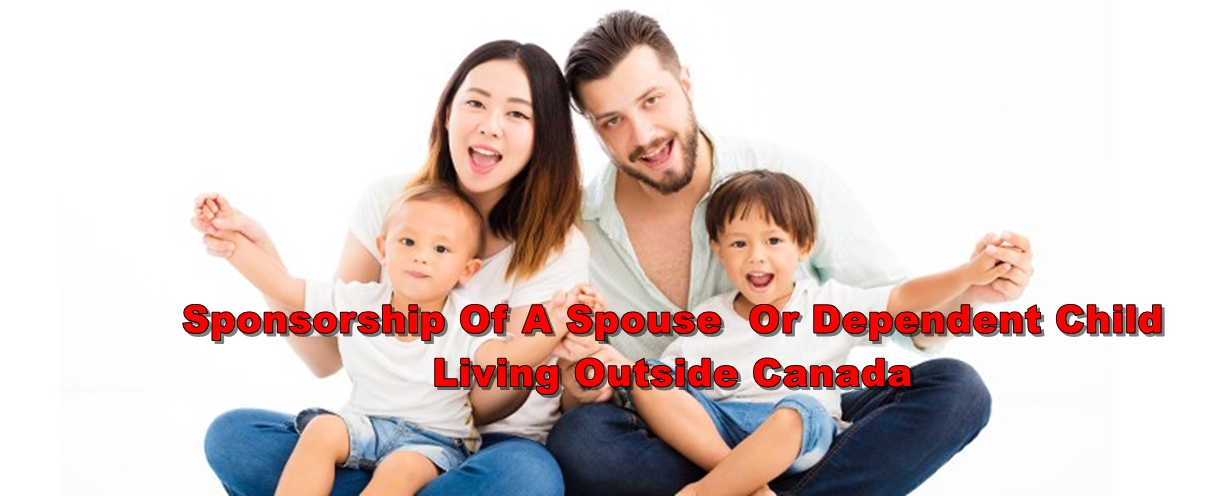Guide 3999 – Sponsoring Your Family Before You Apply
Conjugal Partner
A conjugal partner is a foreign national residing outside Canada who is in a conjugal relationship with a sponsor for at least one year, but could not live with the sponsor as a couple. This term applies to both heterosexual and homosexual couples. This category was established for partners of sponsors who normally would present an application as spouse or common-law partner but cannot due to circumstances beyond their control (e. g., immigration barrier, religious reasons or sexual orientation). Thus, they could not live together for a period of at least one year.
In most cases, the foreign partner is also not able to legally marry their sponsor and qualify as a spouse. In all other respects, the couple is similar to a common-law couple or a married couple, meaning they have been in a bona fide (genuine) conjugal relationship for a period of at least one year.
However, a significant degree of attachment and mutually interdependence between both partners must be demonstrated. They must also provide proof of the obstacles or restrictions that prevent cohabitation or marriage.
Definitions of Dependent children (Types 1 and 2)
Your child or the child of your spouse or common-law partner can be considered a dependent child if that child meets the requirements of type 1 or 2 below:
- TYPE 1
- The child is under the age of 19 and is single (not married and not in a common-law relationship).
- TYPE 2
- The child is 19 years of age or older and has been financially dependent on a parent since before the age of 19 due to a physical or mental condition.
Note: The above requirements must be met on the day the Case Processing Centre receives a complete application. Whether or not they have attained the age of 19, children falling under type 1 must not be married or be involved in a common-law relationship at the time of visa issuance and when they enter Canada.
Do you intend to reside in Quebec?
If you are being sponsored by a Canadian citizen or permanent resident living in the province of Quebec and you intend to settle there, you will receive from your sponsor an additional set of instructions and a form, the Application for Selection Certificate, to complete, sign and return to your sponsor.
If your sponsor meets all of the conditions of Quebec’s provincial legislation to provide an undertaking for you, a Certificat de sélection du Québec (CSQ) will be issued to you. A CSQ is a document issued by the Ministère de l’Immigration, de la Diversité et de l’Inclusion (MIDI)indicating that you are a family class immigration candidate being sponsored by a resident of Quebec who meets the conditions of the provincial legislation.
For more information on Quebec’s requirements, go to the MIDI website at www.immigration-quebec.gouv.qc.ca.
Do I need a passport or travel document?
You and your family members must have valid passports or travel documents. If any of the documents are to expire soon, you should renew them and provide copies of the new passport or travel document to the office processing your application.
Diplomatic, official, service or public affairs passports cannot be used to immigrate to Canada. You must have a valid regular or private passport when you arrive.
Note: The validity of your visa may be affected by the validity of your passport.
How long do I have to complete the application and submit it?
You should complete the forms and return them as soon as possible to your sponsor, along with all supporting documentation.
Note: Your sponsor cannot submit the sponsorship forms until he or she receives your application.
How long is a permanent resident visa valid?
A permanent resident visa is issued for a period not exceeding the earliest expiry date of the following documents:
- the medical results for you and your family members or
- your or your family members’ passport.
 Important information: Permanent resident visas cannot be extended once issued. If applicants do not use the visas within their validity period, they must re-apply for immigration to Canada. Their sponsor will have to submit a new sponsorship application and pay new processing fees.
Important information: Permanent resident visas cannot be extended once issued. If applicants do not use the visas within their validity period, they must re-apply for immigration to Canada. Their sponsor will have to submit a new sponsorship application and pay new processing fees.
My child is in the sole custody of my former spouse. Do I need to include this child in my application?
Yes. Even if there is a written agreement or court order to demonstrate that you do not have custody or responsibility, the child is still required to be listed on your application and must be examined.
Having your child examined as a condition of your application preserves your right to sponsor him or her as a member of the family class in the future, when there may be changes to custody or living circumstances.
Staying informed
Selection criteria, requirements and other information for applicants can sometimes change. Please note that:
- Applications will be processed according to the rules and regulations in effect at the time the application is made. Rules and regulations may change at any time.
Our website contains the latest news, selection criteria updates and applications links. Check periodically for updated information.





